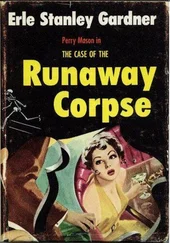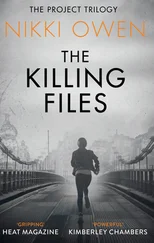Kurt coughs.
‘What?’ I follow his eyeline. My chest. I can see the cotton of my bra.
‘Nothing.’ Another cough. ‘Maria, can you…can you tell me what help you received following your blackout in segregation?’
I pause. I know now exactly who tried to help me. And why. ‘A psychiatrist came to the segregation cell.’
He hits record. ‘I want you to tell me about that.’
He stares at me for three seconds. I rebutton my blouse.
Day must now be night because above my head the strobe lights hum, making me blink over and over, like staring straight at the sun.
I fall back, try to think, but my body throbs, my muscles and skin a sinew of stress. The signs. Normally I recognise them, can quell them, control them, but in here I cannot get a handle on myself, on my thoughts. I force my eyes shut and make myself think of my father. My safe place, my hideout. I inhale, try to imagine the soft apples of his cheeks, how his eyes would crinkle into a smile when he saw me, how he would sweep me into his arms, strong, secure. I open my eyes. My pulse is lowered, my breathing steady, but it is not enough. I need to think. If I remain in segregation I may not survive for long. I have to get out. But how?
I lower myself into the chair, my prison suit clinging to my skin, a stench of body odour jeering me. I am a mess. I hate to be in this state, out of control, in disarray. Allowing my body to slacken, I let my arm hang behind me. My fingers trace the cross, etched into the wall. I almost smile, because wherever I go, it is there: religion. All the priests, their rules. All of them controlling my mind, dictating life to me and everyone else, to a people, to a country, a government. Franco may have long died in Spain, but the Church will always be there.
I shake my head. Whether I want him to be or not, he is not in here now, the priest-he can’t be. So think. I must think if I want to get out of here. This is all just logic. The strip search. The incarceration. The segregation. Isolation. Fear. Panic.
I sit forward. Panic. Could that be it?
I glance at the door. Thick metal. Locked. Only one way out. Standing, I examine the room. Small. Three metres by five metres. One plastic chair: green, no armrest. One bed: mattress, no covers. Floor: rubber, bare. Walls: brick, half plastered in gunmetal grey.
I begin with my breathing; I draw in quick, sharp breaths, forcing myself to hyperventilate. It takes just over one minute, but, finally, it is done. My head swells and I try to ignore the dread in my stomach spreading through my body. I move to the cell door and bang hard, but my effort is lost in a sudden outbreak of shouts from the inmates across the walkway. I wince at the noise, count to ten, make a fist, bang again. This time: success. A guard shouts my name; she is coming over. I estimate it will take her seven seconds to reach my cell. I count. One, two, three, four. At five, I thrust my fingers down my throat. On seven, the window shutter opens above my head and a guard peers through.
‘Oh, shit!’
I vomit. My lunch splatters the floor.
A bolt unlocks. I count to three. One-two-three. I stumble, clutch my chest.
When the guard bursts in, she halts and mutters a swear word under her breath.
‘Martinez? You all right?’
I groan. Another guard enters. ‘Leave her! She’s bloody well fine.’
The guard by my side hesitates.
‘Come on!’ shouts the other.
My chance is slipping away. ‘Help,’ I croak, retching.
‘I’m sorry,’ crouching guard says, ‘but I think you are-’
I vomit. It sprays all over the floor, over the guard.
‘Oh, fuck.’
I mumble some words, but sick is lodged in my throat and it sounds as if I am choking.
‘Get a doctor!’ the guard shouts to her colleague. ‘Now!’
The guard props me up against the wall. The brick is cold on my skin.
‘Is this cell five?’
There is a woman blocking the light by the cell door. She wears no uniform, has no baton.
The guard scowls at her. ‘Who the hell are you?’
The woman steps forward. Blonde hair snakes in a ponytail down her back. ‘I’m Dr Andersson,’ she says, her voice clipped, plum, like a newsreader. ‘Lauren Andersson, how do you do.’ She extends a neat little hand; the guard stands, ignores it.
Dropping her arm, Dr Andersson looks at me. ‘She needs to be out of here. Now.’
‘Hang on a minute,’ says the guard. ‘Who the hell put you in charge? I only want you to check her over.’
‘I’m responsible for the physical and psychiatric well-being of the inmates here,’ Dr Andersson says, side-stepping the vomit. She points to me. ‘This woman is Maria Martinez.’ She folds her arms. ‘And she has been assigned to me.’
‘Since when?’
‘Since today.’ She pushes past the guard, crouches down and takes my wrist. She looks to her watch, checks my pulse, releases my arm. ‘This inmate’s pulse is up. Get her out. Now.’ When the guard does nothing, Dr Andersson stands, her neck taut, voice raised. ‘I said, now.’
I am hauled up under the arms by two guards. Dr Andersson informs them that I am, under no circumstances, to be returned to the segregation cell.
‘I have the full backing of the Governor,’ she says. ‘Do you understand?’
The guards nod.
‘Good. Take her to my office.’
‘So, how are you feeling?’
I don’t know how to answer the question. I am in Dr Andersson’s office. She is sitting at her desk, staring at me. The room is cool, the light low. My pulse has dropped, but still my muscles tense, my fists clench. Everything is disorientating me.
Dr Andersson crosses her legs and her hem slips above her knee. Her cheeks are pink and she has eyes shaped like over-sized almonds.
‘My throat is sore,’ I say, touching my neck, avoiding eye contact.
‘That is to be expected, given the vomiting.’ She swivels to her right and picks up a blood pressure monitor. She opens the strap. ‘Can you roll up your sleeve?’
‘Why?’
‘Blood pressure. You know. Routine.’
I hesitate, then slowly pull up the arm of my jumpsuit to find an apple-sized bruise. I gasp.
‘You did that in the cell?’
‘I think so. I do not remember.’
She peers at it, then after slipping the strap around my bicep, begins pumping the pressure valve. The sound of wheezing fills the air.
‘That was a panic attack you had just now,’ she says, watching the valve. ‘Do you have them often?’
‘Yes.’ I watch the dial turn, try to breathe, remain clam. ‘You can stop now.’
Dr Andersson pauses then deflates the pressure valve and unstraps the band. ‘Your blood pressure is slightly high.’
I rub my arm were the strap has been. What is happening to my body?
Dr Andersson folds the monitor kit and sets it on a table to her left. ‘Do you have a headache?’
‘Yes.’
‘Front or b-’
‘Front.’
‘Light-headedness?’
I nod.
She picks up a notepad and pen. ‘Dizziness?’
I swallow. ‘All the symptoms of anxiety. Yes.’
I don’t want to believe it, but it has to be true. My high blood pressure means I am stressed. In here, in this prison. Anxiety. Worry. Trauma. None of them are good for me. But I do not know what to do, don’t know how to handle the feelings, how to curb them from taking over.
As Dr Andersson writes something down, I distract my thoughts by scanning the room. Boxes sit unpacked in the corner, medical books teeter, stacked next to her desk. There are no personal pictures on her table, no certificates on the wall.
‘Maria? Are you okay?’
I look down at myself. I am rocking. I had not even realised.
Читать дальше
Конец ознакомительного отрывка
Купить книгу












